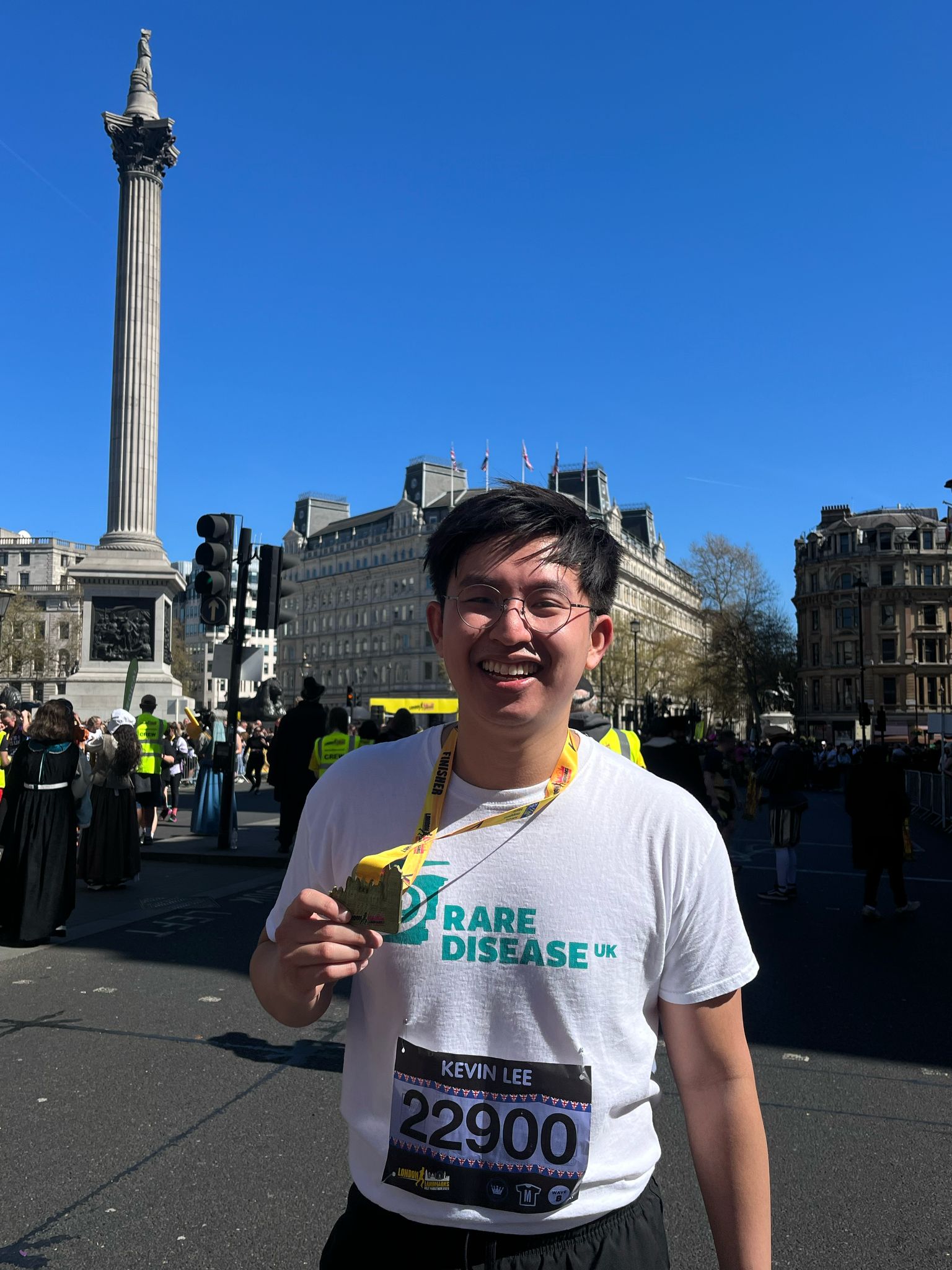Hi SWAN UK community! I’m Kevin and I am a 4th year medical student intercalating for a Master’s in Clinical and Therapeutic Neuroscience at the University of Oxford. My passion for rare disease and Syndromes Without A Name stems from my unique familial experience with Camurati-Engelmann Disease (CED) and Pre-axial Polydactyly (PP), both of which primarily affect the skeletal system.
What was my family’s experience with CED and PP?
For those who may not have come across these two conditions, CED is an ultra-rare skeletal dysplasia, marked by extreme pain in the extremities, waddling gait, muscle weakness, and easy fatigability, whereas PP is a rare congenital deformity of the hand, characterised by the presence of an extra thumb which often compromises normal hand function. For my family, PP was apparent and virtually diagnosed at birth. However, in the case of CED, we went through a diagnostic odyssey of 5 years, involving multiple referrals, investigations, as well as unmeasurable uncertainty and anxiety. Being an ultra-rare condition that was poorly characterised in medical literature at the time, and furthermore in an era where clinical genetics was in its infancy in Malaysia (early 2000s), our experience being undiagnosed forced us to seek for answers around the world – to the extent of journeying on multiple occasions to Australia to consult leading paediatric geneticists and sending blood samples to Belgian research laboratories in hopes of identifying an underlying genetic cause.
Why did I choose to fundraise and support SWAN UK and Rare Disease UK?
Much of my family’s experience with CED – the countless appointments at hospitals (and worrying over finances to travel there and compromise work duties), correspondences with medical personnel and experts around the world, days spent trying to review and decode scientific jargon in new mechanistic papers, and not least the eternal anxiety about health complications, death, and heritability – is not uncommon to people affected or living with undiagnosed conditions. However, they are often neglected themes in healthcare and many healthcare professionals remain unaware of how challenging it is to live with or care for someone with an undiagnosed condition. For these reasons, I chose to fundraise and raise awareness among the medical fraternity and public for SWAN UK at the London Landmarks 2025 Half-Marathon.
Advocating for rare and undiagnosed conditions among the healthcare student community:
In 2023, I founded the Cardiff Rare Disease Student Society to address the limited knowledge, awareness, and poor perceptions of healthcare students on rare and undiagnosed conditions. Our core aims have been to educate healthcare students on the lived experiences of rare conditions, the evolving landscape of rare disease research, and how they can practice becoming better clinicians for people with diagnosed or suspected rare conditions. We achieve this partly through organising a range of seminars with clinicians, scientists, and patient-advocates, but also through coordinating for medical students to participate in Genetics Clinics. The society, based at Heath Park, University Hospital Wales, also leverages on the unique Syndromes-Without-A-Name service, and associated Multi-Disciplinary Team (MDT) discussions located there – we have coordinated for several Cardiff University medical students to observe in the SWAN Clinic and MDT who have thoroughly enjoyed this unique learning experience.
At Oxford however, I am the current Co-President of the Oxford Rare Disease Student Society, where we recently organised the Inaugural Rare Disease Student Conference on 23rd February 2025 prior to Rare Disease Day. Looking to the future, I hope to organise a similar-but-different Student Conference and webinar series focusing on SWAN.
If you would like to get involved with Kevin’s work raising awareness for Rare Conditions and SWAN among healthcare students, you can contact him a:t [email protected].
To donate to Kevin’s fundraiser for Rare Disease UK and SWAN UK click here.



